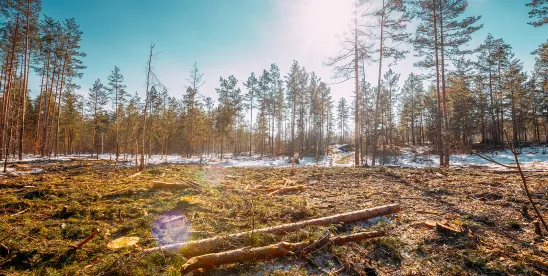The European Commission (EC) released on May 22, 2025, the identity of the countries that present a low or high risk of deforestation in producing seven commodities (cattle, cocoa, coffee, palm oil, rubber, soy, and wood) that are “the most relevant in terms of driving global deforestation and forest degradation” under the European Union Deforestation Regulation (EUDR). The classification takes into account other criteria as listed in Article 29(4) of Regulation (EU) 2023/1115. The Regulation is scheduled to enter into force on the third day following its publication in the Official Journal of the European Union (May 26, 2025).
High-Risk Countries
Belarus, Democratic People’s Republic of Korea, Myanmar, and the Russian Federation.
Low-Risk Countries
Afghanistan, Albania, Algeria, Andorra, Antigua and Barbuda, Armenia, Australia, Austria, Azerbaijan, Bahamas, Bahrain, Bangladesh, Barbados, Belgium, Bhutan, Bosnia and Herzegovina, Brunei Darussalam, Bulgaria, Burundi, Cabo Verde, Canada, Central African Republic, Chile, China, Comoros, Congo, Costa Rica, Croatia, Cuba, Cyprus, Czechia, Denmark, Djibouti, Dominica, Dominican Republic, Egypt, Estonia, Eswatini, Fiji, Finland, France, Gabon, Georgia, Germany, Ghana, Greece, Grenada, Guyana, Hungary, Iceland, India, Iran (Islamic Republic of), Iraq, Ireland, Italy, Jamaica, Japan, Jordan, Kazakhstan, Kenya, Kiribati, Kuwait, Kyrgyzstan, Lao People’s Democratic Republic, Latvia, Lebanon, Lesotho, Libya, Liechtenstein, Lithuania, Luxembourg, Madagascar, Maldives, Mali, Malta, Marshall Islands, Mauritius, Micronesia (Federated States of), Monaco, Mongolia, Montenegro, Morocco, Nauru, Nepal, Netherlands (Kingdom of the), New Zealand, North Macedonia, Norway, Oman, Palau, Palestine, Papua New Guinea, Philippines, Poland, Portugal, Qatar, Republic of Korea, Republic of Moldova, Romania, Rwanda, Saint Kitts and Nevis, Saint Lucia, Saint Vincent and the Grenadines, Samoa, San Marino, Sao Tome and Principe, Saudi Arabia, Serbia, Seychelles, Singapore, Slovakia, Slovenia, Solomon Island, South Africa, South Sudan, Spain, Sri Lanka, Suriname, Sweden, Switzerland, Syrian Arab Republic, Tajikistan, Thailand, Timor-Leste, Togo, Tonga, Trinidad and Tobago, Tunisia, Türkiye, Turkmenistan, Tuvalu, Ukraine, United Arab Emirates, United Kingdom of Great Britain and Northern Ireland, United States of America, Uruguay, Uzbekistan, Vanuatu, Vietnam, and Yemen.
Standard-Risk Countries
If a country is not listed in the high-risk category or the low-risk category, the EC has assigned it a standard level of risk.
The EUDR, enacted on June 29, 2023, is intended to ensure that manufacturers do not produce goods from recently deforested areas or produce their goods in ways that contribute to deforestation. The Regulation explicitly applies to the seven aforementioned commodities and, importantly, to certain byproducts that contain feedstocks from the named commodities, to be “deforestation-free” if they are made available on or exported from the European Union (EU) market.
Just because a country has been designated as “standard risk,” or even “low risk,” under the EUDR does not mean that manufacturers looking to import products into the EU are exempt from having to complete due diligence statements. Manufacturers producing products in low-risk countries have reduced obligations as set forth in the simplified due diligence requirement, and are required to collect and report information on their supply chains, but do not have to assess and address deforestation risks under Articles 10 and 11 of the Regulation. Companies manufacturing products in low-risk countries face the same data collection obligations, although they must comply with fewer compliance checks.
Companies producing goods from high-risk and standard-risk countries will need to show when and where commodities were produced and provide “verifiable” information that they were not sourced from land deforested after 2020.



 />i
/>i

